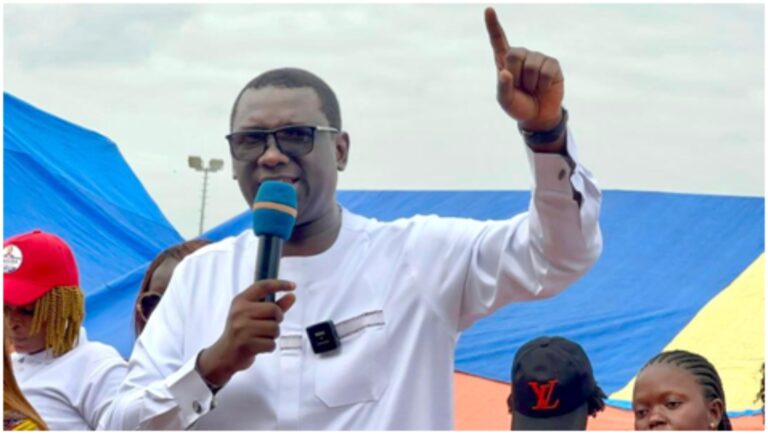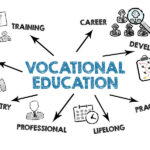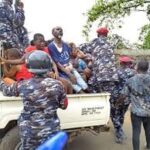Exam Chaos: WAEC in Crisis, Students in Limbo
By Jarrah Kawusu-Konte
Freetown – July 2025 – In the first piece of my Sectoral Series titled “A Nation Left Behind: How the Collapse of Sierra Leone’s Education System Became a National Emergency,” I acknowledged that the Free Quality School Education (FQSE) Programme is a great initiative which has been poorly implemented. I discussed the huge challenges afflicting the FQSE. I highlighted how the untimely disbursement of the grossly inadequate subsides gravely affect effective school management. I made the point that unavailability of funds, teaching, and learning materials have resulted in less desired learning outcomes, contrary to the touted objectives of the FQSE.
In this piece, I will be examining the devastating consequences of the 2025 collapse of the West African School Certificate Examinations (WASSCE) and Basic Education Certificate Examinations (BECE) administration. I believe that that accident is perhaps the most alarming symptom of the deeper failure of our education system.
Readers would recall that over 40,000 students were barred from sitting to this year’s national exams due to administrative lapses. Even more disheartening was the fact that, instead of taking responsibility, this failure was blamed on school principals, and while students were punished for failures in leadership, their parents were left in tears.
But behind those blame shifting is a painful truth: many schools lacked the internet, resources, and support needed to submit Continuous Assessment Scores (CASS) on time. The Ministry of Education offered no buffer, no second chances. Essentially, the Ministry of Basic and Senior Secondary Education failed to coordinate timely submission of Continuous Assessment Scores (CASS) to WAEC.
To better appreciate the context, it is important to note that WAEC’s systems are standard across West Africa. Nigeria, Ghana, and The Gambia and they had no such crisis in those countries. Even Sierra Leone itself, the examinations have been managed smoothly until recent years. Under the previous APC administration, WAEC processes, though imperfect, never triggered mass exclusion. But under this administration, procedural breakdown and institutional indifference turned a technical task into a disaster. The 2025 disaster marks the first systemic collapse of WAEC.
“WAEC isn’t broken. The government’s relationship with WAEC is,” said an education officer in Port Loko. “They failed to follow WAEC’s timelines, protocols, and training procedures, and students paid the price.”
“This was not just a glitch,” said a WAEC liaison officer in Bo. “It was a collapse of governance.”
An educationist writing in Education for Transformation warned years ago: “Any education reform that lacks consistency and coherence at the point of delivery will deepen inequality, not reduce it.”
The government may cite budget constraints. But what communities demand is not charity, it’s effectiveness and accountability. Education isn’t just about chalkboards and classrooms. It is about equity, nation-building, and hope. It is the tool that lifts communities out of poverty and plants the seeds of self-reliance. And when a government fails to deliver the most basic components, textbooks, salaries, exams, it doesn’t just fail a policy test. It fails a moral test.
Paulo Freire, the great Brazilian philosopher of education, once said: “Washing one’s hands of the conflict between the powerful and the powerless means to side with the powerful.” By ignoring the daily struggles of students and teachers, this government has sided with apathy over action, with appearances over accountability.
A National Crossroads: We Need Competence, Not Campaigns
This is no longer a debate about party politics. This is a call to national conscience. The collapse of Sierra Leone’s education system is not a northern tragedy or an eastern embarrassment, nor is it a southern lamentation or a western region disaster. It is a Sierra Leonean emergency. And it demands serious, credible, and competent leadership.
But when budget delays turn into broken school terms, when promises travel faster than disbursements, and when school administrators wait in vain for resources, a generation risks being left behind. Our children are not asking for miracles. They’re asking for chairs, for teachers, for organised and effective coordination of the schooling. Education remains the most powerful equalizer a nation can offer. That is why this election cycle must not be about region or tribe. It must be about who has the capacity, clarity, and credibility to fix what is broken.
The Way Forward: Why APC Must Lead, and Why Dr. Ibrahim Bangura Must Be Chosen
The All People’s Congress (APC) must present the nation with more than just a political alternative. It must offer a leadership alternative. And that leadership must begin with the selection of a flagbearer whose record, integrity, and experience match the scale of the crisis.
We must elect a leader with the capacity to heal, unite, and build. And to begin, we must choose Dr. Ibrahim Bangura.







Cities’ message to world leaders: Unlock direct climate finance for Africa’s urban future